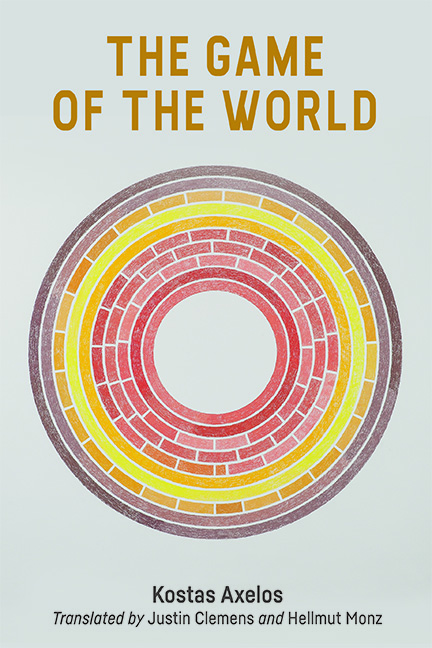Book contents
- Frontmatter
- Contents
- Translators’ Introduction
- Prelude
- Opening. The Great Powers and the Elementary Forces of the World
- I Logos. The Language and Thought of Man and the World
- II That. The Play of the Being in Becoming of the Fragmentary and Fragmented Totality of the Multidimensional and Open World
- III God-Problem
- IV Physis. The Cosmic World
- V The Human in the World
- VI World History
- VII The World of Poetry and Art
- VIII Being-Nothingness, Everything-Nothing, the Unworldly World
- IX The Game of the World
- Notes
- Analytical Table
V - The Human in the World
Published online by Cambridge University Press: 17 November 2023
- Frontmatter
- Contents
- Translators’ Introduction
- Prelude
- Opening. The Great Powers and the Elementary Forces of the World
- I Logos. The Language and Thought of Man and the World
- II That. The Play of the Being in Becoming of the Fragmentary and Fragmented Totality of the Multidimensional and Open World
- III God-Problem
- IV Physis. The Cosmic World
- V The Human in the World
- VI World History
- VII The World of Poetry and Art
- VIII Being-Nothingness, Everything-Nothing, the Unworldly World
- IX The Game of the World
- Notes
- Analytical Table
Summary
The human has been defined – which apparently defines everything – as extremely fragile being and as a terrible existent, as the measure of all things and as rational animal, as imago Dei and as (subjective-objective) foundation of objectivity, as body-soul-spirit (by emphasising sometimes one side, sometimes the other, by synthesising or seeking unity), as subject, as social and political animal, as generic worker and socialising being, as person and existence and as being where goes the being of the world, as distant being and almost as human-problem. Will all these definitions make the human speak and act – at the same time making speaking and acting the encompassing that the human both is and is not – the passing existent, this being to be surpassed, without altogether finishing it, and leave the question in suspense: until when will subjectivity, even objectified and collectivised, be the last word?
We are obliged to track and follow the traces – traces that mix themselves and lose themselves – that link – with continuity and solution of continuity – the human to the non-human.
How does the human manage to enter in any case into the dimension of the logos, to ‘dialogue’ with what it is not?
By becoming anthropology, metaphysical philosophy becomes not only an interpretation of the human being: all the interpretations and all the beings find themselves reduced, by this reflexive philosophy – anthropology – to the human, who is supposed to be the secret of the essence or the existence of the being as such and in its entirety.
At the moment when philosophy becomes the philosophy of subjectivity to begin to finalise itself in anthropology, the human appears as the last figure of the absolute.
If the absolute is the ensemble of human relations, it is then precisely not ab-solute. It still remains to comprehend relations: they link humans with each other and with what else?
Plaything of dust, emerging from earth and becoming dust again, the human plays for some time with it.
Although without models, the human ‘imitates’. What? It aims to get as close as possible – to what?
Different from animals, does the human have a – near or distant – relation with itself and the – near and distant – world?
- Type
- Chapter
- Information
- The Game of the World , pp. 267 - 320Publisher: Edinburgh University PressPrint publication year: 2023



